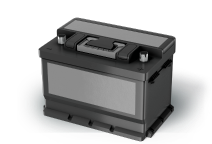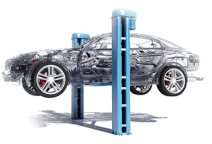A vehicle's fuel filter is often a small, unassuming component that goes unnoticed until it starts causing problems. This unobtrusive part is actually a critical player in ensuring that impurities do not make their way to your engine, thereby keeping the fuel clean and ensuring the smooth operation of your vehicle. However, over time, fuel filters can become obstructed or deteriorate, and there are several noticeable indicators that suggest it's time to consider replacing the filter. In this article, we will delve into these telltale signs, helping you recognize when it's necessary to deal with a malfunctioning fuel filter.
- Diminished Engine Performance
One of the initial symptoms of a problematic fuel filter is a reduction in engine performance. You might start to notice your vehicle struggling to accelerate, and the engine might feel less responsive. This is because a clogged filter restricts the flow of fuel to the engine, thereby making it work harder to generate power.
- Deteriorating Fuel Efficiency
A dirty or deteriorating fuel filter can also lead to decreased fuel efficiency. When the filter is obstructed, the engine may not receive an adequate amount of fuel, causing it to run less efficiently. Consequently, you may experience a drop in your vehicle's miles per gallon (MPG).
- Stalling or Sputtering
If your car stalls or sputters during your drive, a faulty fuel filter could be the root cause. The obstruction in the filter can result in fuel starvation, leading to intermittent power loss and engine misfires.
- Difficulty in Starting the Engine
A severely clogged fuel filter can create starting problems, especially in cold weather. This is because the filter limits the fuel flow to the engine, making it challenging for your vehicle to ignite and operate smoothly.
- Engine Misfires
A malfunctioning fuel filter can disrupt the regular flow of fuel to the engine, causing engine misfires. These misfires might manifest as uneven idling, vibrations, or a lack of power while driving.
- Unusual Engine Noises
Unusual engine noises, such as pinging or knocking sounds, may indicate a problem with the fuel filter. These sounds can occur when the engine doesn't receive a sufficient fuel supply, leading to detonation and potential damage.
- Activation of the Check Engine Light
A clogged fuel filter can trigger the check engine light in your vehicle. Most modern cars have sensors that monitor engine performance, and when the engine's functionality is compromised due to fuel supply issues, the check engine light activates. In such situations, it's advisable to use an OBD-II scanner to read the vehicle's diagnostic trouble codes (DTCs) to pinpoint the specific issue.
- Reduced Power Under Heavy Loads
If you find that your vehicle struggles to accelerate while climbing steep hills or when towing heavy loads, it could be attributed to a malfunctioning fuel filter. These demanding tasks require more fuel from the engine, and a clogged filter can obstruct this supply, leading to noticeable power loss.
Conclusion
Being able to identify the signs of a failing fuel filter is crucial for preserving the performance and efficiency of your vehicle. If you observe any of these indicators, it's essential to address the problem promptly. Replacing a fuel filter is a relatively straightforward maintenance task and is typically recommended at specific intervals specified in your vehicle's owner's manual. Regular replacements will guarantee that your engine consistently receives clean and unobstructed fuel, promoting the long-term health and dependable performance of your car. If you are uncertain about the condition of your fuel filter or the replacement process, consider seeking assistance from a professional mechanic @
zDegree to ensure the well-being of your vehicle.























